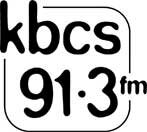A History of Busking By Niceol Blue
When I set out to learn about the origins of this proud profession, I had no idea just how little information is “out there” about how it began. Like many other ancient professions, the beginnings of busking are shrouded in mystery. Perhaps some early man or woman did play or sing or juggle for food and a place at the table . . . and perhaps that could be called “busking” . . . but that is supposition, nothing more. Indeed, there is very little mention of the profession in any written history of any civilization in any age! However, after digging, and digging, and digging some more, I found snippets, some in places one would not expect to find them.
First, let’s look at the word: Busker. We already have Webster’s definition, lets dig a little deeper. I had heard that the term derived from the word “buskin”, which was a knee-high, thick-soled lace-up boot worn by actors of Greek and Roman tragedy (and was later used to describe tragic actors in general), but the word veers here on the etymological map, away from any association with the modern meaning. The word busker actually gets it’s origins from the Middle Spanish word “Buskar”, meaning “to seek or to wander”, and thus was logically applied to those wandering minstrels of the middle ages that we all think we know so well. It seems, however, that the image of the happy minstrel, brightly clad and carrying his lute over his shoulder has been greatly romanticized and changed throughout history, making it difficult to distinguish legend from fact. There are, however, in ancient and dusty records, a few actual facts to be found.
The first record of street performance in Western history can be found in a legislation passed in Rome in 451 BC, known as The Laws of the Twelve Tables. Within these, we find a prohibition against the singing or composing of “Libelli Famosi”, or defamatory poems or songs, the punishment being death. The performers of these anti-establishment works were not state sponsored, obviously, and therefore would draw an audience wherever they could, for whomever would listen, and although there is no record of them receiving “tips” for their brilliant political satires, there is a record of the Roman practice of throwing coins to performers in general. So perhaps these rebels were our predecessors.
The next historical find is a reference to a law passed by Charlemagne’s son, Luis the Pious. Previously, entertainers were accorded the same justice as everyone else, providing they were citizens. Louis the Pious changed the law so that it excluded “Histriones and Scurrae and all entertainers without Noble protection from the privilege of justice.” Much later, in the year 1530, King Henry VIII of England ordered the licensing of “Beggars who could not work, as well as pardoners, fortune tellers, fencers, minstrels and players.” If they did not obey this edict, they could be whipped for two consecutive days. Later still, we find an 1887 British law that regarded street performers with, “Cripples, blind men, old men, women, children, sweepers, match girls, sham watermen, fishermen, and gardeners” as people for the Police force to “Watch”, which basically implied that it was alright to harass them. (!)
Indeed it would seem that, throughout history, buskers have been pushed to the fringes of society, by the very society they seek simply to entertain. Even today, it is illegal to busk in most major cities, all over the world. Yet people continue to sing, dance, juggle, draw, act, paint, sculpt, and prestidigitate on the streets and sidewalks, willingly risking punishment (albeit less violent than in times gone by), for the pleasure and entertainment of passersby, and a coin or two.
So the next time you see street performers, carrying on the great and ancient occupation of busking, remember the history they carry, and the risk involved, and remember to toss a buck or two their way.









